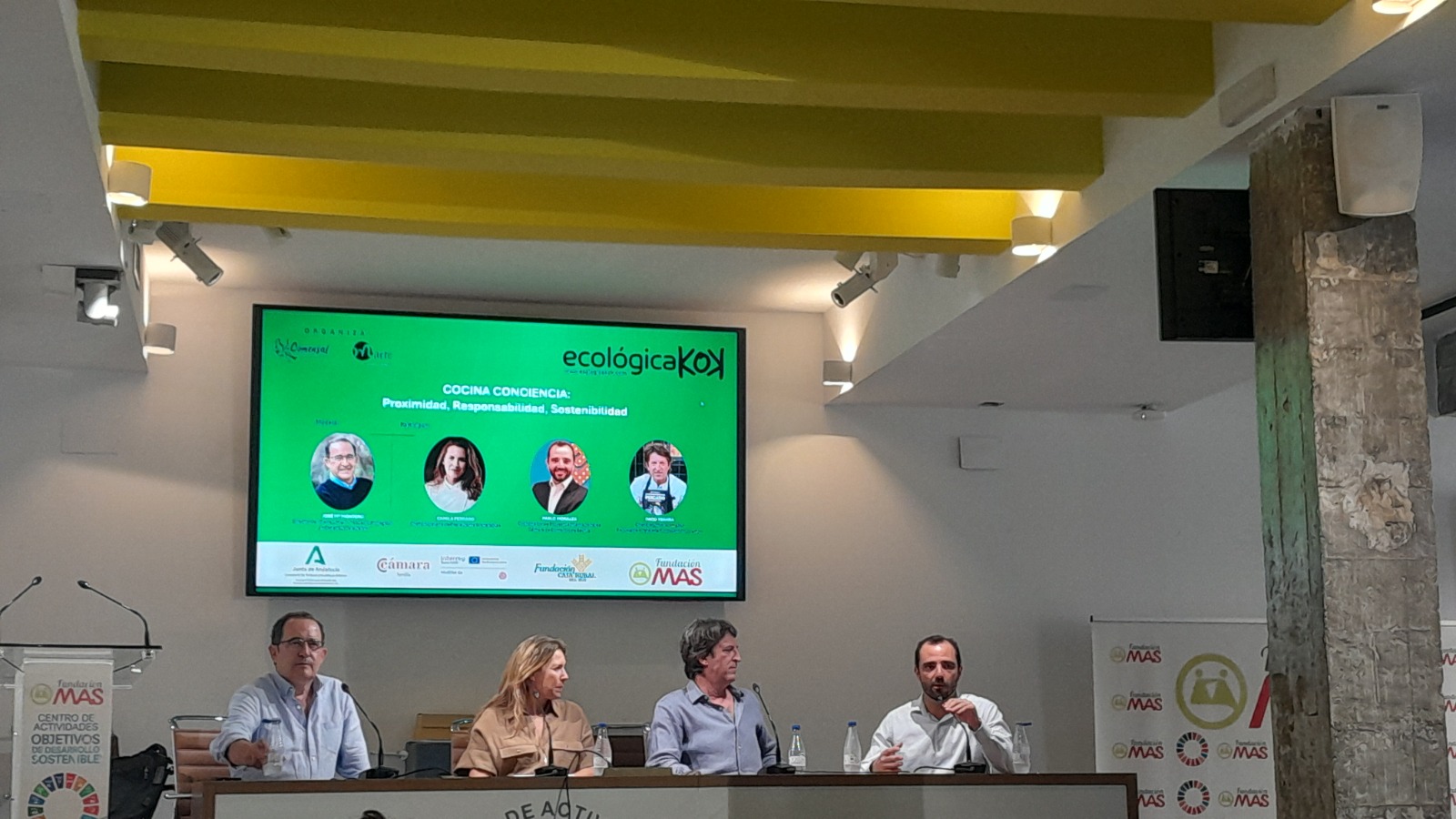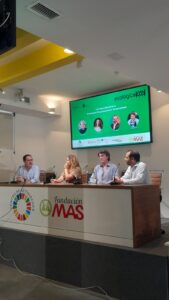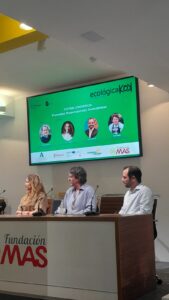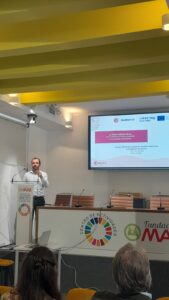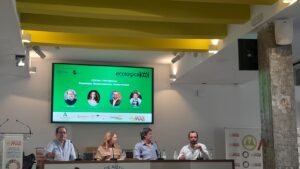The Chamber of Commerce of Seville organised the second Living Lab “Conscious Cooking: Proximity, Responsibility, Sustainability” of the MedDiet Go! project, co-financed by INTERREG Euro-MED. The event brought together culinary professionals and local stakeholders to explore sustainable Mediterranean diet implementation strategies and was structured in two main activities that fostered collaborative dialogue and strategic planning within the EcologicaKok framework.
EXPERT PANEL AND INTERNATIONAL STRATEGY
The first activity, “Conscious Cooking: Proximity, Responsibility, Sustainability,” featured a panel discussion moderated by José Mª Montero, Director of the “Protected Space” and “Land and Sea” programmes at Canal Sur TV.
The panel included distinguished speakers: Camila Ferraro, Chef and owner of Sobretablas Restaurant; Pablo Morales, International Projects Coordinator at the Chamber of Commerce of Seville; and Paco Ybarra, Executive Chef and trainer at the Cruzcampo Foundation Hospitality School. These professionals shared their experiences and knowledge about sustainable gastronomy.
Panel discussion focused on:
- Conscious cooking practices: Implementing responsible culinary techniques
- Proximity and local sourcing: Building stronger supplier relationships
- Professional training: Educating chefs in sustainable gastronomy methods
The second activity focused on the “International Strategy of MedDiet Go,” led by Pablo Morales, who provided participants with insights into the project’s broader European context and its implementation across different Mediterranean regions. This session emphasised the importance of cross-border collaboration in promoting sustainable gastronomy practices.
LIVING LAB OBJECTIVES AND OUTCOMES
Discussions centered on key challenges and opportunities for integrating proximity-based cooking, environmental responsibility, and sustainability into modern gastronomy practices. Participants engaged in productive brainstorming sessions to identify concrete ideas and actions that could be implemented at both local and regional levels.
Main discussion topics included:
- Proximity-based cooking: Strengthening connections with local producers
- Environmental responsibility: Reducing food waste and carbon footprint
- Sustainability practices: Implementing eco-friendly culinary techniques
The mission of the event was to strengthen the connection between local producers, chefs, and consumers whilst promoting the Mediterranean diet as a model for healthy, sustainable, and economically viable food practices. The initiative aims to create a network of conscious culinary professionals committed to preserving Mediterranean food traditions.

